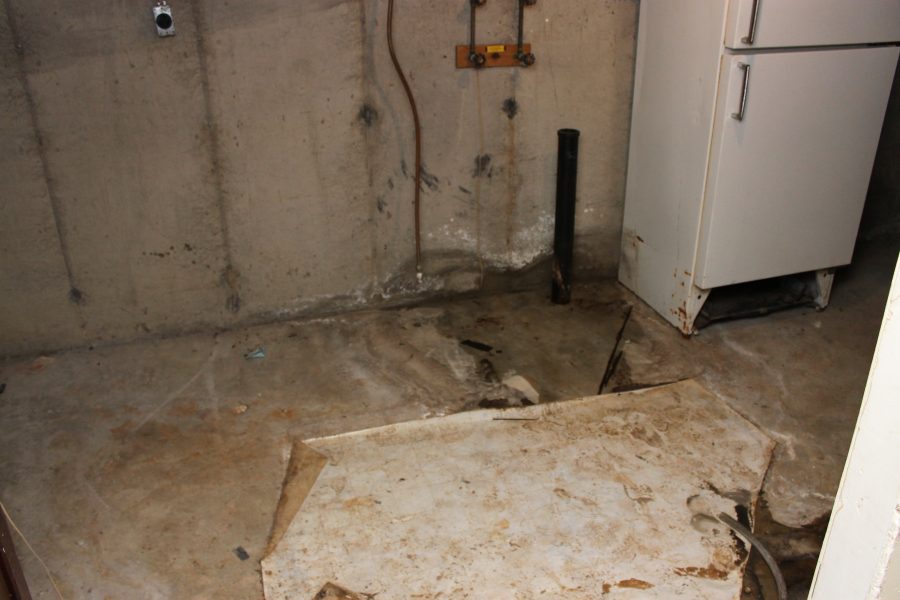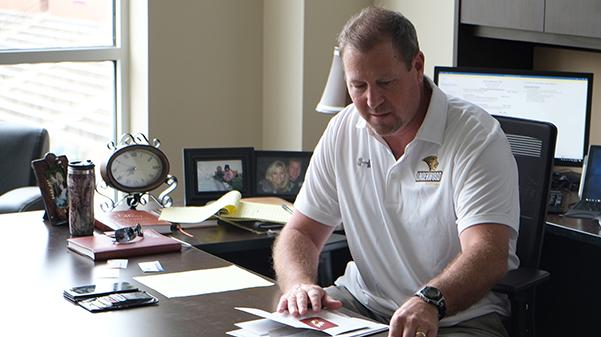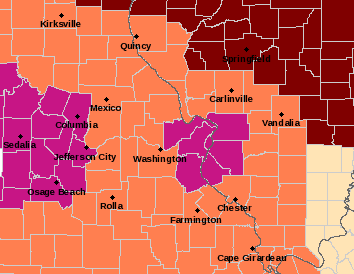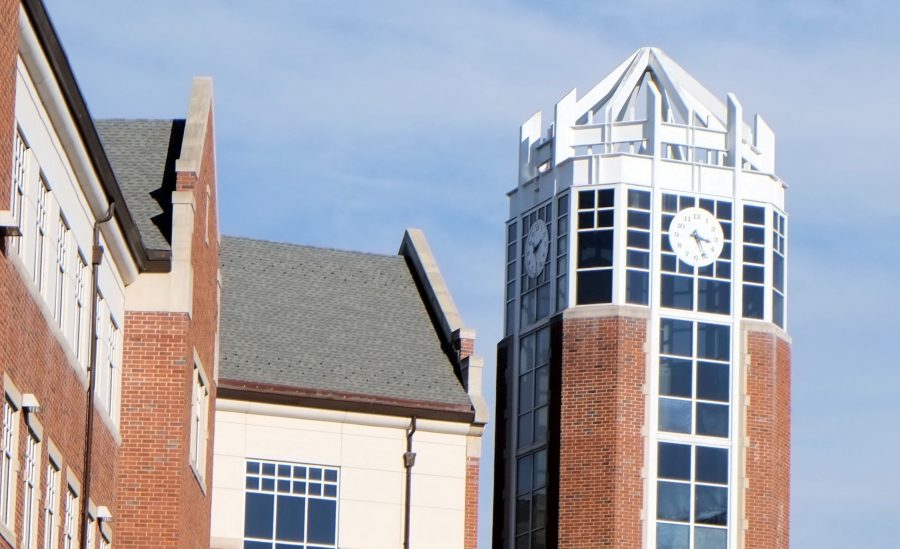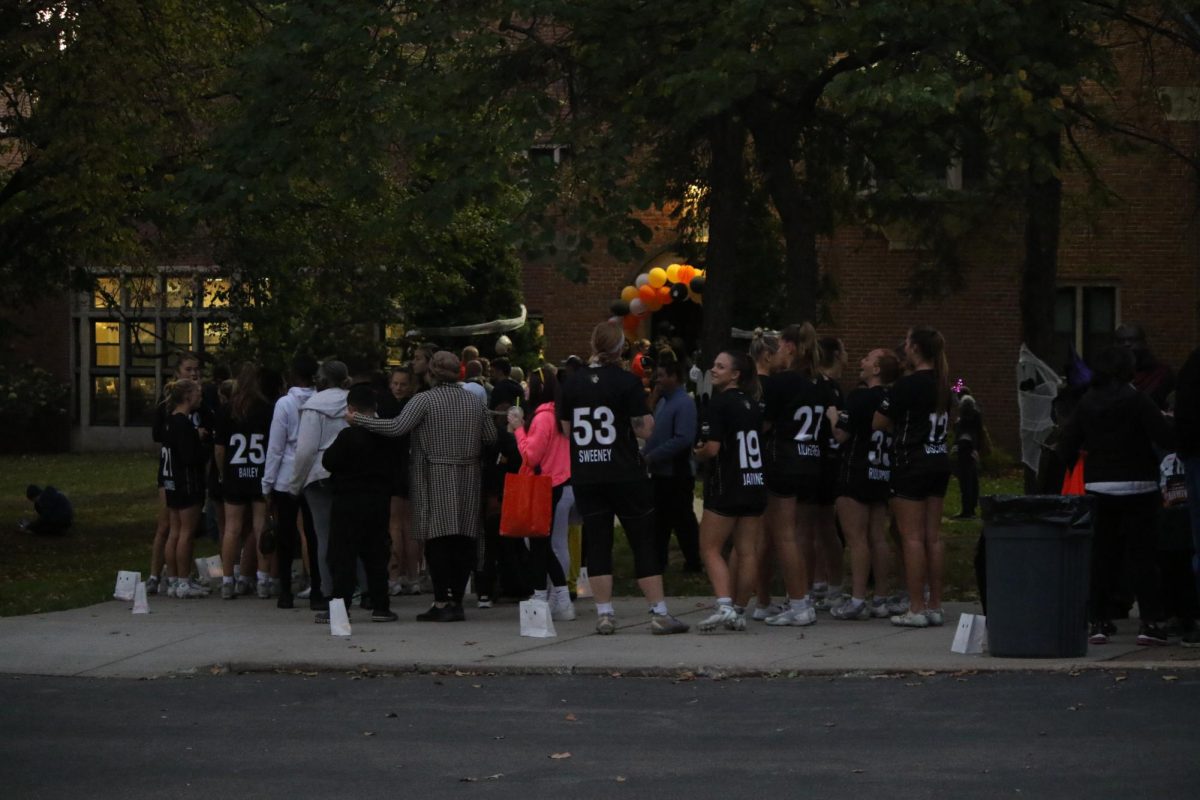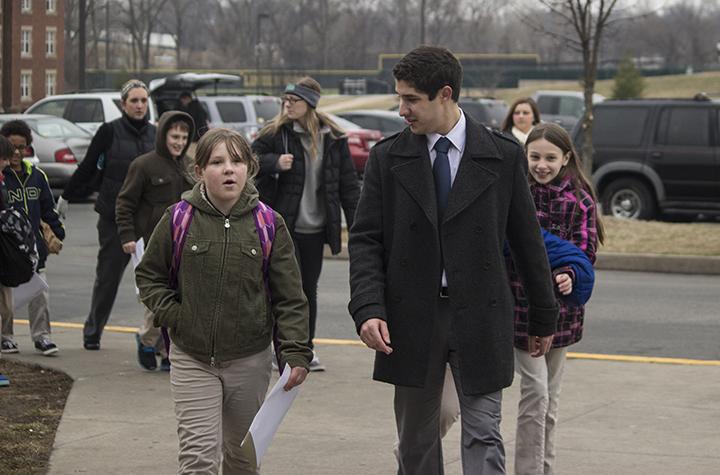Kenny Gerling | Senior Writer

There is something about basements that makes them scary. Dank and dark, they are the sort of place a person goes to only when a need presents itself. If a student’s campus house has a basement and the residents haven’t confronted their fears in a while, there may just be a true terror seeping in, waiting to get their shoes wet.
In many of the over 200 campus houses, signs are posted telling students to not use the basement as living quarters.
Because of these signs, students may forget to regularly check if there are any issues. Other times a problem can be hard to miss. Student Shelby McDaniel had sewage back up into her basement three times in one month. After the third incident, she moved out. “It wasn’t sanitary, good for my health or the health of my roommates,” McDaniel said.
According to Michelle Giessman, director of student housing, all campus houses are thoroughly inspected twice a year in addition to monthly health and wellness checks completed by the resident directors (RDs).
But if a house is between inspections and the RD has no reason to check the basement, there is a chance water and sewage can get in and stand for days or even weeks until noticed.
“It smelled terrible,” McDaniel said. Eventually, she said, some of the waste got into the carpet. Maintenance was back several times cleaning up the mess.
Business Service Center Director Joyce Norman said, “The Campus Facility’s Office receives utility bills on each home Lindenwood owns: electric, gas and water. If there is a utility bill that suddenly triples in cost, that is a red flag, and the maintenance person is given a work order for that home and asked to check the situation out.” After the issue is fixed, they then clean up the mess to the student’s satisfaction.

Student Lauren Mueller is still dealing with occasional flooding from sewer pipes in her basement, but says maintenance has always responded to her calls. “It’s obviously not fixed, but they show up quickly,” Mueller said.
Norman said a variety of things such as tree roots, facial wipes and cotton swabs all have been known to cause backups. Problems are also known to occur after heavy rain-fall and dramatic shifts in temperature. She said some warning signs include toilets backing up, sinks not draining and a persistent smell.
Giessman said students should call the maintenance department first if a problem occurs. Lindenwood also has maintenance staff on call in the evenings who can be reached by contacting security.
Basements are never totally off-limits in case of tornado warnings, but they are often not allowed to be utilized as a living space since many are without a proper exit in emergency situations. Some impending changes will limit the wear and tear on the aging houses and ideally reduce the number of incidents.
Giessman said that after reevaluation, housing has decided to reduce capacity on many of the houses. Plans are also moving ahead to construct the Lindenwood University Village, which will include one- to three-bedroom apartment-style housing.
But while the houses are still in use, old clay pipes and creeping tree roots will continue to cause problems for residents. “If we know about a problem, we’re on it to fix it,” Giessman said.
If students have problems with flooding or related issues in housing, maintenance can be reached at 636-949-4922.



